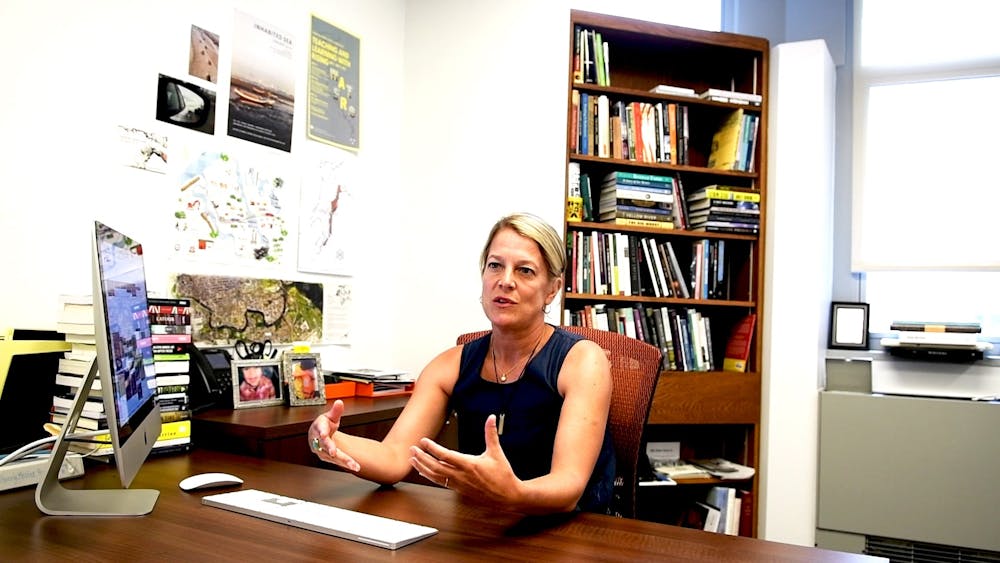The Penn Program in Environmental Humanities (PPEH) is offering a new environmental humanities minor to let students explore how humans relate to their surroundings through natural sciences, social sciences, and humanities.
Since 2014, PPEH has offered courses that touch on environmental themes in departments such as English; Anthropology; Science, Technology, & Society; and Business Economics & Public Policy. Since 2017, The program has been planning on creating a minor in environmental humanities, which was recently approved.
German professor Bethany Wiggin, founding director of the PPEH, said that the minor will focus on building an interdisciplinary curriculum. Students will take one core course in environmental humanities taught by two faculty members from different divisions of the School of Arts and Sciences. Students will also be required to take courses in natural sciences, social sciences, and humanities.
“We want to put the humanities back into the environment,” Wiggin said, adding that people often consider the environment relevant for scientific study alone.
“Traditionally, ecology has been thought of as equal to ecology being without humans and humanists have thought about cultural products, divorced from the material world around them or the physical environment," Wiggin said. “[Ecology is] also the world that we are in, the world around us, and the worlds that we make.”

Some of the posters hanging of Dr. Wiggin's wall.
College sophomore Katie Collier said she is considering joining the minor because she wants to gain a new perspective on environmental issues and how they affect people's everyday lives.
"I expect to learn more like a humanistic perspective of environmental issues rather than what we currently have, which is fairly policy-oriented and/or scientific-oriented," Collier said.
RELATED:
How one student's interest is shaping a new Penn minor
Penn undergrads can now major in environmental anthropology
Sustainability Course Inventory helps students identify classes with environmental themes
Collier added that she hopes the minor can provide a new way for students to participate in discussing and solving environmental issues, especially for those who may not want to do research or spend time engaging these issues outside of class.
College sophomore Evelyn Sorrell is currently taking "Environmental Media," a Benjamin Franklin Seminar offered through PPEH. Sorrell said she is enjoying the diverse backgrounds of students in the course, with many from the Wharton School.
“[It] creates an interesting dynamic," Sorrell said. "There’s often a tension between environmental issues and economic growth.”
Sorrell, who is also a public research intern for the PPEH, said the essence of environmental humanities is “connecting culture with hard science.”

Dr. Wiggin's whiteboard in her office.
“Environmental humanities is a good way to engage with the environment in a way that isn’t necessarily like intro to environmental sciences.” Sorrell said. “No matter what field you are going into, having the environment somehow in the back of your mind is good in any age, but especially now when it’s extra relevant.”
College senior Piotr Wojcik, who has taken courses through PPEH, said the new minor looks exciting and will hopefully give more students the chance to take environmentally focused courses.
“I know from my personal experience that it has been difficult to take courses that are truly interesting if they are not already part of a major or minor,” Wojcik said.
Wiggin said PPEH is considered an international leader in the field.
“We are asked to talk a lot at other universities about how you build an [environmental humanities] program,” Wiggin said.
Wiggin credited students for the program's achievements. Student efforts led to the establishment of PPEH in 2014, giving Penn an early start in environmental humanities compared to other universities.
“[Climate change is] the number one grandest, most wicked problem that we are dealing with and will deal with for a really long time,” Wiggin said. “We have to be training the next generation now for the problems we are facing.”









